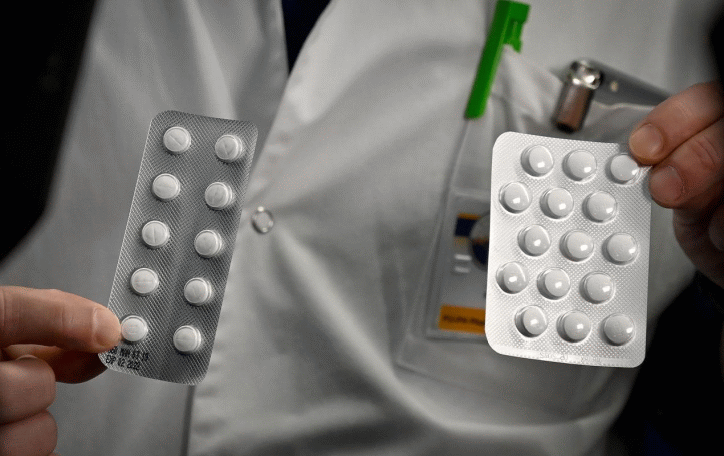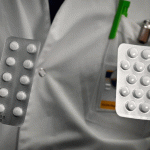Hydroxychloroquine and other autoimmune drugs are not fully effective in protecting against coronavirus, early data compiled Global Rheumatology Alliance shows

Hydroxychloroquine (HCQ) has become one of the the most controversial drugs in world after President Trump touted the malaria drug as game-changer as a potential treatment for coronavirus. Since then, many doctors and patients claimed the malaria drug has saved their lives. However, doctors and scientists are still very skeptical about the drug due to lack of clinical trials to proof its safety and effectiveness.
However, new data compiled Global Rheumatology Alliance shows many of the patients taking hydroxychloroquine and other treatments for chronic rheumatologic diseases have become infected with Covid-19. This finding is significant because it put to rest the disinformation that lupus patients are not infected with coronavirus.
In a paper published on Thursday in medical journal Lancet, the Global Rheumatology Alliance, a coalition of rheumatologists, researchers and patients, launched a registry of 110 individuals with rheumatic disease who have been diagnosed with COVID-19 are included from six continents: Europe, North America, South America, Asia, Africa, and Oceania.
Within 1 week of launching the registry, rheumatology providers from around the world have submitted data on more than 100 cases, allowing very preliminary characterisation and rapid dissemination of information regarding COVID-19 in individuals with rheumatic disease.
They found that dozens of people taking hydroxychloroquine and other treatments for chronic rheumatologic diseases became infected with Covid-19, according to initial analysis of emerging data that is a sign the drugs may not protect people from the new coronavirus.
Meanwhile, about 190 patients with the chronic diseases who were taking hydroxychloroquine reported in surveys to the alliance that they contracted Covid-19. Doctors also say they have treated individuals with coronavirus who were lupus patients taking hydroxychloroquine.
| Cohort (n=110) | ||
|---|---|---|
| Sex | ||
| Female | 79 (72%) | |
| Male | 31 (28%) | |
| Aged >65 years | 20 (18%) | |
| Primary rheumatic disease | ||
| Rheumatoid arthritis | 40 (36%) | |
| Psoriatic arthritis | 19 (17%) | |
| Systemic lupus erythematosus | 19 (17%) | |
| Axial spondyloarthritis | 7 (6%) | |
| Vasculitis | 7 (6%) | |
| Sjogren’s syndrome | 5 (5%) | |
| Other | 17 (15%) | |
| Medications before diagnosis of COVID-19 | ||
| Conventional synthetic DMARDs | 69 (63%) | |
| Biological DMARDs | 49 (45%) | |
| JAK inhibitor | 5 (5%) | |
| NSAIDs | 28 (25%) | |
| Glucocorticoids | 27 (25%) | |
| Other | 5 (5%) | |
| Five most common COVID-19 symptoms at onset | ||
| Fever | 87 (79%) | |
| Cough | 85 (77%) | |
| Shortness of breath | 55 (50%) | |
| Myalgia | 49 (45%) | |
| Sore throat | 41 (37%) | |
| Admitted to hospital | 39 (35%) | |
| Died | 6 (5%) | |
| Five most common comorbid conditions | ||
| Hypertension | 31 (28%) | |
| Lung disease | 22 (20%) | |
| Cardiovascular disease | 12 (11%) | |
| Morbid obesity (BMI ≥40 kg/m2) | 9 (8%) | |
| Diabetes | 9 (8%) | |
Researchers say the published data and surveys may be small but already show that hydroxychloroquine doesn’t fully protect people from contracting the new virus. “There is still no evidence that HCQ works for the treatment or prevention of COVID-19,” MD, MPH, of the University of California San Francisco and Zuckerberg San Francisco General Hospital, said. “It is important for the medical community to maintain equipoise and realize that our inferences are extremely limited from currently available uncontrolled or poorly controlled studies.”
Whether background immunosuppressive medications put individuals with rheumatic disease at an increased or decreased risk for severe SARS-CoV-2 infection is unknown, and evidence is lacking to guide treatment decisions, the report says.




